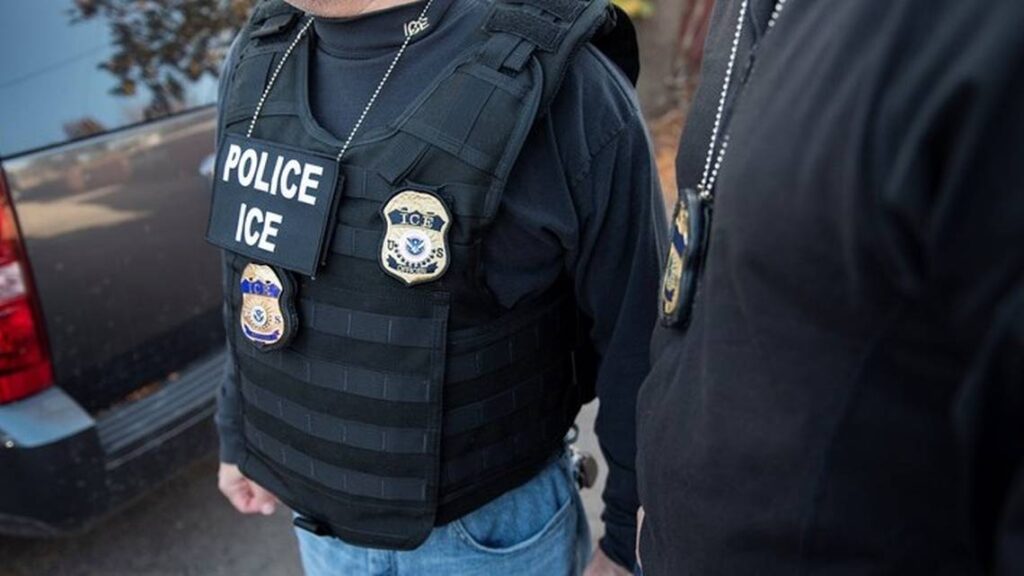IMMIGRATION
TALLAHASSEE
The city of South Miami wants a judge to determine whether its police department is required to question and arrest undocumented immigrants on behalf of the federal government as local governments that refuse face threats from Florida’s attorney general. “The only safe harbor left for us is to go to court and ask a court to render an opinion on what the law is and what our obligations are. Not the merits of the policy,” South Miami Mayor Javier Fernandez said during a meeting on Tuesday night. “It’s a narrow question.” South Miami has not yet formally put the question in front of a judge. But its Commission’s decision to involve the courts came after Attorney General James Uthmeier told Fort Myers city officials that they violated a state law when they chose not to enter into a formal agreement with U.S. Immigration and Customs Enforcement that gives local police the ability to stop and detain undocumented immigrants during the course of their routine jobs.
Uthmeier said that not enrolling in ICE’s 287(g) program is a “serious and direct violation” of a 2019 Florida law that bans so-called sanctuary cities — a broad term used for places that do not cooperate with federal immigration authorities. He warned they – and, implicitly, any other municipality with a police force choosing not to sign the agreement – could face civil and criminal penalties, including being suspended from office by Gov. Ron DeSantis. South Miami’s chosen course of action highlights how Florida’s cities are navigating state mandates as DeSantis makes it a goal to place state and local police on the vanguard of President Donald Trump’s crackdown on illegal immigration. Now, city officials in nonpartisan roles worry getting caught in the state’s cross-hairs could lead to retaliation, including state budget cuts to their local projects.
Fernandez, a Miami-Dade Democrat who previously served as a state representative in Tallahassee, had initially proposed removing the city manager’s authority to enter agreements with other law enforcement agencies, arguing that it was the best way to get city administrators “out of the political arena” and put the burden and consequences of decision making on elected officials. After the City Commission learned about Uthmeier’s letter, the Commission opted to consult a judge instead. “We have to be attuned to the fact that we’re operating in an environment where people want to score political points first,” the mayor said. “And you know what? I don’t care. What I want is to live in a society where we operate by the rule of law.”
Locals join federal immigration enforcement efforts
In Florida, more than 100 law enforcement agencies have signed on to participate in the federal immigration enforcement program — by far the most of any state in the nation.
Dozens of city police departments, including those in Coral Gables, Key West, Tampa and St. Petersburg, have joined in recent weeks as state officials ramped up the efforts to get locals enrolled in the 287(g) program to give more manpower to Trump’s efforts. But some police chiefs, like Coral Gables Police Chief Ed Hudak, have said the ICE partnership is a way to comply with Florida’s ban on sanctuary cities In South Miami, Fernandez says the city wants to analyze how joining the ICE partnership could affect their risk exposure, insurance coverage and labor agreements.
“We’ve been trying to understand those issues before we jumped on board,” Fernandez told the Herald in an interview Wednesday. “What are the nuts and bolts?” Anthony Recio, the city attorney for South Miami, said that Uthmeier’s letter to the Fort Myers City Council was “not necessarily what the law is,” but his interpretation of the law. While an attorney general’s opinions are advisory, they usually carry significant weight when issued.
Fernandez said he believed that there was no obligation to join the 287(g) programs but that he would “be happy” to abide by any outcome from the courts. At the meeting, South Miami officials acknowledged concerns that the state is pressuring local officials to participate in a program that may not be required under state law. ”I just feel that this entire conversation is one that’s being driven by a fair amount of coercion,” Fernandez said at the meeting.
Read more at: https://www.miamiherald.com





















